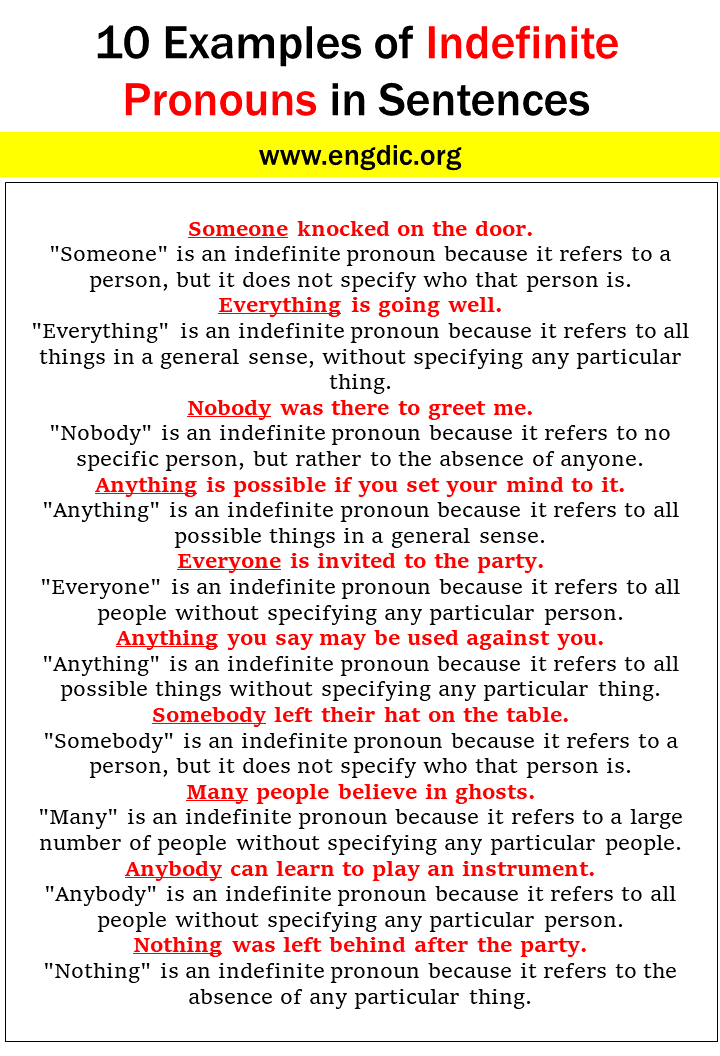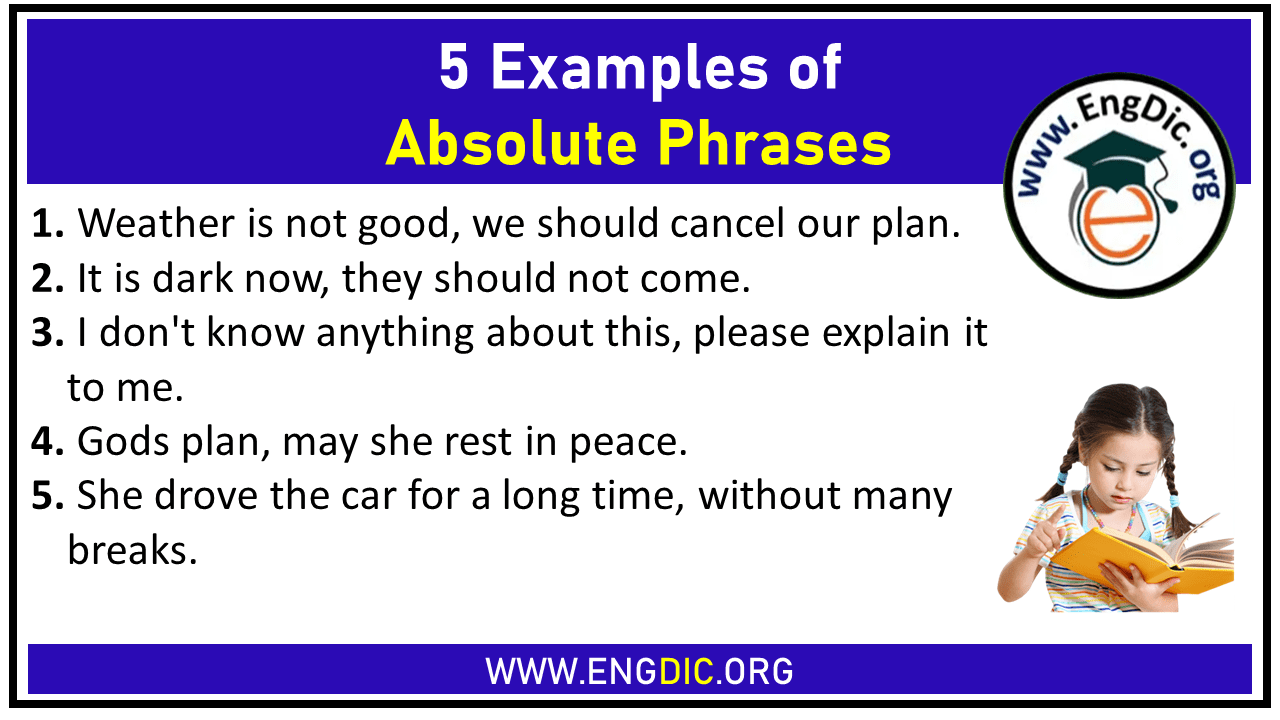10 Examples of Indefinite Pronouns in Sentences! Pronouns are an essential part of the English language and can help us to communicate more clearly. Indefinite pronouns add a layer of complexity to sentences, allowing us to express ambiguity and uncertainty in the things we say. In this article, we will explore 10 examples of indefinite pronouns in sentences. We’ll look at how these pronouns can be used to convey a range of meanings and why they are important for effective communication.
Related: 100 Examples of Indefinite Pronouns

- Someone knocked on the door.
“Someone” is an indefinite pronoun because it refers to a person, but it does not specify who that person is.
- Everything is going well.
“Everything” is an indefinite pronoun because it refers to all things in a general sense, without specifying any particular thing.
- Nobody was there to greet me.
“Nobody” is an indefinite pronoun because it refers to no specific person, but rather to the absence of anyone.
- Anything is possible if you set your mind to it.
“Anything” is an indefinite pronoun because it refers to all possible things in a general sense.
- Everyone is invited to the party.
“Everyone” is an indefinite pronoun because it refers to all people without specifying any particular person.
- Anything you say may be used against you.
“Anything” is an indefinite pronoun because it refers to all possible things without specifying any particular thing.
- Somebody left their hat on the table.
“Somebody” is an indefinite pronoun because it refers to a person, but it does not specify who that person is.
- Many people believe in ghosts.
“Many” is an indefinite pronoun because it refers to a large number of people without specifying any particular people.
- Anybody can learn to play an instrument.
“Anybody” is an indefinite pronoun because it refers to all people without specifying any particular person.
- Nothing was left behind after the party.
“Nothing” is an indefinite pronoun because it refers to the absence of any particular thing.
Indefinite Pronouns Exercises With Answers
Here are some exercises with answers:
Exercise 1: Identify the indefinite pronoun in each sentence.
1. Anyone can join the club.
Answer: anyone
2. Somebody called your name.
Answer: somebody
3. We didn’t see anything unusual.
Answer: anything
4. Everyone is welcome to come to the party.
Answer: everyone
5. Nothing can stop us from achieving our goals.
Answer: nothing
Exercise 2: Choose the correct indefinite pronoun to complete each sentence.
1. _____ of these books looks interesting. (Someone, Anyone)
Answer: Either “someone” or “anyone” could be correct, depending on the intended meaning. If the speaker wants to suggest that they have a particular person in mind who might be interested, they might say “someone.” If they’re simply making a general statement, they might say “anyone.”
2. _____ can play this game if they want to. (Nobody, Everybody)
Answer: Everybody
3. _____ can learn to cook if they practice enough. (Anybody, Somebody)
Answer: Anybody
4. _____ left their phone on the table. (Somebody, Nobody)
Answer: Somebody
5. _____ is going to win the race. (Everyone, Anyone)
Answer: Anyone
Exercise 3: Rewrite each sentence using an indefinite pronoun.
1. John and Sarah both went to the store.
Answer: Somebody went to the store.
2. The cookies on the counter look delicious.
Answer: Something on the counter looks delicious.
3. Jake and his friends ate all the pizza.
Answer: Somebody ate all the pizza.
4. None of the students knew the answer.
Answer: Nobody knew the answer.
5. All the chairs in the room were taken.
Answer: Nobody could find an empty chair in the room.







